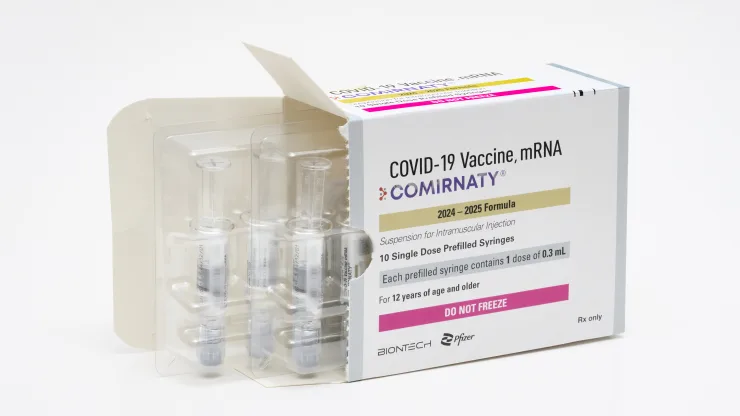The Food and Drug Administration (FDA) has approved updated Covid vaccines from Pfizer and Moderna, setting the stage for their distribution across the United States in the coming days. These new vaccines are designed to target the KP.2 strain, a descendant of the highly contagious omicron subvariant JN.1, which was prevalent earlier this year. Although KP.2 accounted for only about 3% of U.S. cases as of the latest data from the Centers for Disease Control and Prevention (CDC), Pfizer and Moderna assert that their vaccines can generate a stronger immune response against other circulating subvariants, such as KP.3 and LB.1, compared to the previous year’s shots.
Dr. Peter Marks, director of the FDA’s Center for Biologics Evaluation and Research, emphasized the importance of the new vaccines in light of waning immunity from prior infections and vaccinations. The CDC has recommended that everyone aged 6 months and older receive the updated Covid vaccine this year, along with their flu shot. Pfizer’s vaccine is approved for people aged 12 and older, with emergency use authorization granted for children aged 6 months to 11 years. Moderna’s vaccine is expected to follow a similar timeline for availability.
Both companies have announced that their vaccines will be shipped immediately, with availability in pharmacies, hospitals, and clinics nationwide within days. Moderna’s CEO, Stephane Bancel, highlighted that staying up to date with Covid vaccinations remains one of the best ways to protect against severe illness, encouraging individuals to consult with their healthcare providers about receiving the updated vaccine alongside the flu shot this fall.
The approval of these vaccines comes as the U.S. experiences a summer surge in Covid cases. Wastewater monitoring, a key indicator of virus prevalence, shows a “high” or “very high” level of Covid in almost every state. Although Covid test positivity rates and hospitalization numbers have increased, they remain significantly lower than during the pandemic’s peak.
The new vaccines are arriving earlier this year compared to last year’s shots, providing reassurance as the country faces the ongoing threat of new variants. However, it remains uncertain how many Americans will choose to receive the updated vaccine. Last fall, only about 22.5% of U.S. adults received the latest round of shots, with many citing a lack of concern about the virus as their reason for opting out.
Novavax, which produces protein-based vaccines, is still awaiting FDA authorization for its JN.1-targeting shot. While the company’s vaccine also offers protection against variants such as KP.2 and KP.3, its technology does not allow for rapid updates like the mRNA-based vaccines from Pfizer and Moderna. Despite this, Novavax is optimistic that its vaccine will be available in time for peak vaccination season in the U.S.
READ MORE:
